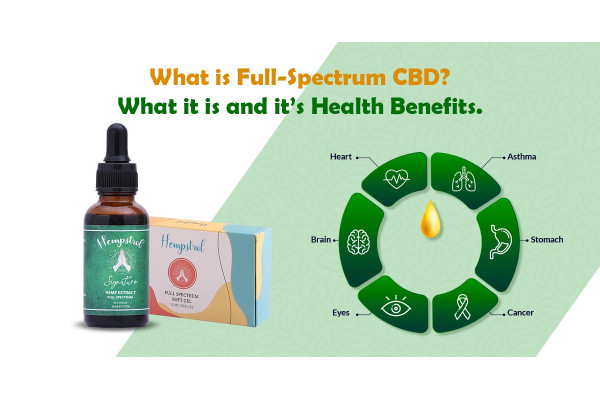CBD For Mental Wellness: Know The Anxiety-Calming Potential Of Cannabidiol Oil
There has been a growing interest in the potential mental health benefits of CBD in recent years. Some of the existing studies suggest that cannabidiol oil India holds promise in the treatment of a number of conditions including depression, anxiety, epilepsy, and sleep issues, among other things.
Epilepsy: CBD appears to have a range of benefits for neurologic disorders, including decreasing the frequency and severity of seizures. Some of these conditions, such as Dravet syndrome and Lennox-Gastaut syndrome (LGS), may not respond well to anti-seizure medications. Viral clips of CBD treatments effectively alleviating seizures have been shared widely on social media in recent years, and research has supported the effectiveness of these treatments
Anxiety: Anxiety is a common problem for many people. Some studies suggest that cannabidiol oil India may help alleviate symptoms of anxiety. One study looks at the possible neural basis for CBD-reducing symptoms of social anxiety disorder. A 2015 study published in the journal Neurotherapeutics analyzed the existing preclinical studies on the use of CBD for anxiety and found that CBD was effective for a number of anxiety conditions including:
Generalized anxiety disorder: For generalized anxiety disorder (GAD), the National Institute on Drug Abuse (NIDA)Trusted Source says that CBD has been shown to reduce stress in animals such as rats. Study subjects were observed as having lower behavioural signs of anxiety. Their physiological symptoms of anxiety, such as increased heart rate, also improved.
Social anxiety disorder and Post-traumatic stress disorder (PTSD): CBD may also benefit people with other forms of anxiety, such as social anxiety disorder (SAD) and post-traumatic stress disorder (PTSD). It may help treat anxiety-induced insomnia as well. In 2011, a study researched CBD’s effects on people with SAD. Participants were given an oral dose of 400 milligrams (mg) of CBD or a placebo. Those who received CBD experienced overall reduced anxiety levels. Multiple recent studies have shown that CBD can help with PTSD symptoms, such as having nightmares and replaying negative memories. These studies have looked at CBD as both a standalone PTSD treatment as well as a supplement to traditional treatments like medication and cognitive behavioural therapy (CBT).
Note: However, the authors of the study note that while the substance has considerable potential, further research is needed to better determine the therapeutic benefits and long-term effects.
Depression: Effective treatments are available, which include psychotherapy and medication, although interest in complementary and alternative treatments has also grown in recent years. CBD has been investigated for having potential antidepressant effects. Some antidepressants work by acting on serotonin receptors in the brain. Low serotonin levels may play a role in the development of depression, and animal studies suggest that CBD might have an impact on these receptors which may produce antidepressant effects.
A 2018 study found that the antidepressant-like effects that CBD produces depend upon the serotonin levels in the brain. Cannabidiol does not appear to increase serotonin levels but instead affects how the brain responds to serotonin that is already present in your body.
Sleep Difficulties: Because CBD may have a calming effect, it may also hold promise in treating sleeping difficulties. Sleep is a critical component of mental health and well-being, This is problematic since not getting enough sleep is linked to health conditions such as depression, type 2 diabetes, obesity, and heart disease. One study conducted with adults who had symptoms of anxiety and poor sleep found that 65% experienced improvements in sleep quality scores after a month of taking an average of 25mg of CBD daily, although those scores fluctuated over time. Further research is needed to determine the possible effects of CBD on sleep.
 (1).jpg) How does CBD work to relieve anxiety?
How does CBD work to relieve anxiety?
The human body has many different receptors. Receptors are protein-based chemical structures that are attached to your cells. They receive signals from different stimuli.
CBD is thought to interact with CB1 and CB2 receptors. These receptors are mostly found in the central nervous system and the peripheral nervous system, respectively.
The exact way CBD affects CB1 receptors in the brain isn’t fully understood. However, it may alter serotonin signals.
Serotonin, a neurotransmitter, plays an important role in your mental health. Low serotonin levels are commonly associated with people who have depression. In some cases, not having enough serotonin may also cause anxiety.
The conventional treatment for low serotonin is a selective serotonin reuptake inhibitor (SSRI), such as sertraline (Zoloft) or fluoxetine (Prozac). SSRIs are only available by prescription.
Some people with anxiety may be able to manage their condition with CBD instead of an SSRI. However, you should talk to your doctor before making changes to your treatment plan and getting cannabidiol oil online in India.
Also Read: How CBD Oil Enhances Physical Recovery Mental Resilience, and Overall Well-Being
 (1).jpg) Does CBD Treat Anxiety?
Does CBD Treat Anxiety?
The full scope of CBD’s health effects is not yet known, but early scientific research and preclinical evidence supports the potential use of CBD as a treatment for anxiety disorders, according to a study published in the National Library of Medicine.
Still, there is no U.S. Food and Drug Administration-approved medication containing CBD that specifically treats anxiety, and many products are considered unregulated dietary supplements that may contain unknown ingredients.
There are also no standardized dosing guidelines for hemp-derived CBD at this time, making it hard to determine recommended dosage for certain health conditions, according to the National Academies of Sciences, Engineering, and Medicine.
The World Health Organization in 2017 said that CBD in its pure form “does not appear to have abuse potential.” The Centers for Disease Control and Prevention recommends against the use of vaping or e-cigarettes in any form, including to use CBD, as both are linked to acute lung injury and even death.
High levels of CBD can interfere with how your liver metabolizes drugs, such antidepressants and other prescription medications.
Talk to your doctor before trying any new alternative medicine. Treatment for mental health conditions should be guided by your health care professional, who may recommend a mix of therapy, medication, and homeopathic remedies.
 (1).jpg) CBD side effects
CBD side effects
CBD is generally considered safe. However, some people who take CBD may experience some side effects, including:
Diarrhea
fatigue
changes in appetite
changes in weight
CBD may also interact with other medications or dietary supplements you’re taking. Also Read: 5 Ways that CBD May Benefit Your Mental Health













%20(1)-600x450.jpeg)




